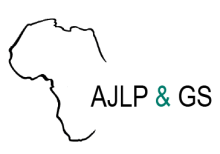Land Library Search
Through our robust search engine, you can search for any item of the over 73,000 highly curated resources in the Land Library.
If you would like to find an overview of what is possible, feel free to peruse the Search Guide.
/ library resources
Showing items 1 through 9 of 77.We analyze rural households’ purchases of food (cereals and non-cereals) in Sub-Saharan Africa using nationally representative data with 65,000 observations covering 7 countries over a decade.
Context and background The mastery and control of rural areas remain a challenge for both landowners and the Burkinabe State.
Women are more food insecure than men globally and in every region. This paper investigates the global gender gap in food insecurity and its evolution following the COVID-19 pandemic.
Current food systems fail to address the triple burden of malnutrition — undernutrition, micronutrient deficiencies, and overnutrition (Popkin, 2019; Béné, 2019; Fanzo, 2020).
Background: Economic reforms and trade liberalisation in Vaietnm have transformed the food environment, influencing dietary patterns and malnutrition status.
The Transforming Agrifood Systems in South Asia (TAFSSA) district agrifood systems assessment aims to provide a reliable, accessible, and integrated evidence base that links farm production, market access, dietary patterns, climate risk responses, and natural resource management with gender as a
The Transforming Agrifood Systems in South Asia (TAFSSA) district agrifood systems assessment aims to provide a reliable, accessible, and integrated evidence base that links farm production, market access, dietary patterns, climate risk responses, and natural resource management with gender as a
The Transforming Agrifood Systems in South Asia (TAFSSA) district agrifood systems assessments aims to provide a reliable, accessible, and integrated evidence base that links farm production, market access, dietary patterns, climate risk responses, and natural resource management with gender as a
The Transforming Agrifood Systems in South Asia (TAFSSA) district agrifood systems assessment aims to provide a reliable, accessible, and integrated evidence base that links farm production, market access, dietary patterns, climate risk responses, and natural resource management with gender as a


